
Five Women, Five Countries, Five Questions: Meet Climate Shero Elsie Gabriel
Climate change disproportionately effects women all around the world, and everyday women are stepping up to act on climate to positively impact their communities.
For Women’s History Month, five incredible women Climate Reality Leaders across the world sat down to answer five questions about the interconnectedness of womanhood, the impact of the climate landscape, and their work within their communities.
To kick off the series, here is an outstanding leader from Mumbai, India.
Meet Elsie Gabriel.
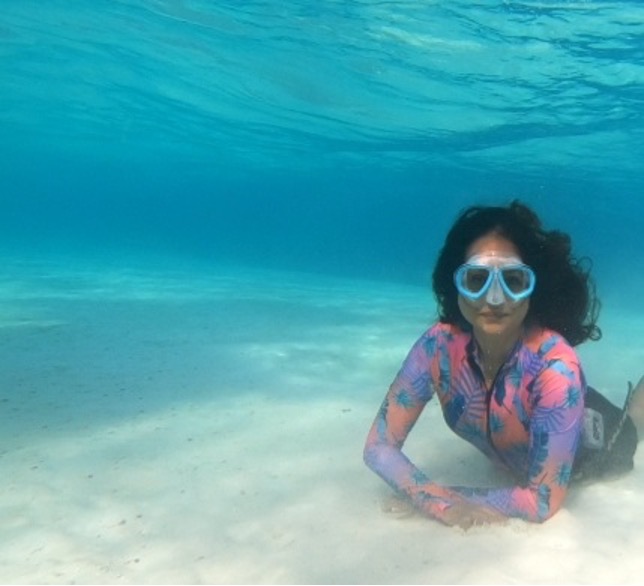
With over 15 years of experience in environmental activism and ocean conservation, award-winning activist Elsie Gabriel is a climate shero like none-other. Elsie, a certified ocean diver is the founder and co-chair of Ocean School India and Young Environmentalists Programme, a global peace ambassador with the Wockhardt International Foundation, and a certified diver researching how ocean communities can be change agents. She was also recently honored as the Ocean Quest Global Ambassador for India. She wrote the book "Get Out Get Going Outdoors" to promote outdoor and environment education to inspire people in this work. Elsie is also the national coordinator for oceans at The Climate Reality Project India.
How did you get involved in the climate fight?
In 2005, powerful cyclonic rains and floods struck Mumbai, damaging its infrastructure. The extreme weather event was my first introduction to the consequences of climate change and from that point on, I have dedicated my life to advocating for environmental causes.
Seeing humans drown and the Mithi River gutted in plastics blocking the water from finding its way out of the city roads into the ocean was very disturbing. I gathered 50 women into a group founded as Young Environmentalists Programme Trust to work on educating the young adults and students on climate change mitigation and environment education with a focus on outdoors education, namely ban of plastics, Powai Lake, environment education, ocean literacy, and beach cleaning.
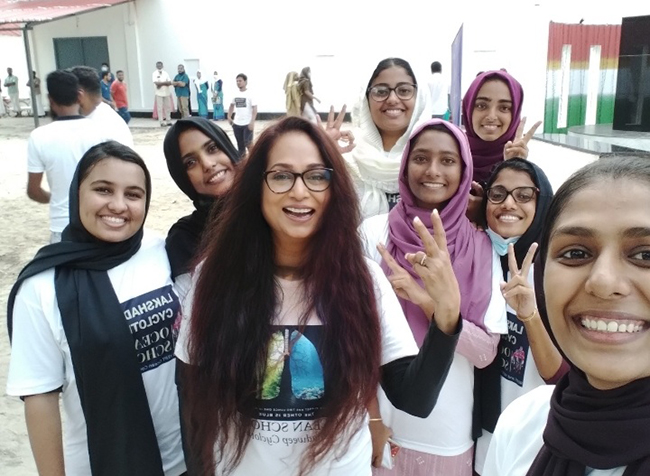
How does your perspective and experience as a woman shape your work?
I believe environment activism centers primarily on women’s rights, but empowering and educating women is also critical to protecting the environment. This is the foundation stone on which I work.
Looking at the other side of the coin, women are also most likely to be negatively impacted by climate change, and educating women is one of the best ways to mitigate environmental consequences. As an ecofeminist, I deeply believe that our work in climate change mitigation is tightly entwined with environmental causes and disasters, therefore women must rise to advocate for the protection of the planet, starting in their home and backyard.
Climate change evidence is there for all to see and act upon. But ordinary women can play a dynamic role as climate educators, while being mothers and home makers. We can juggle and conduct multitasking with ease, therefore our role [in the movement] is important. This is a time of crisis and it’s a crisis of our own making. The climate crisis does not see gender. We created this situation, and we can set things straight. Both men and women equally. Together we are the solution.
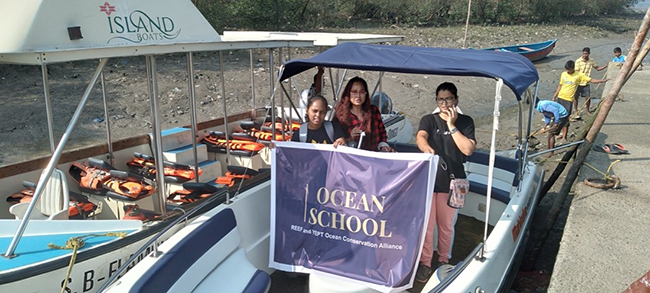
How have you seen climate change affect your life and your community?
As global temperatures continue to rise, climate change affects our wallets, our health, our safety, and our daily lives.
Here in Mumbai India, intense storms and heavy precipitation have increased, resulting in floods, traffic delays, commuting problems, and pollution. In a city like Mumbai, like any other city, every monsoon, runoff picks up pollutants from the streets and overflows into sewage systems, allowing untreated sewage to enter our water bodies. The Powai Lake areas, which I work around for ecological study trails, are filled with garbage and water hyacinths. So is the Mithi River, which requires more frequent cleaning. The ocean throws up garbage with every storm and strong wave. We are not able to keep up.
With frequent storms the Indigenous people I associate with like the fishing community are the worst affected. Fishermen's income gets affected and alternative resources are not always easy to get.
As temperatures rise, we need to stay cool for health and comfort reasons, which in turn has given rise to bigger electricity bills. As we rely more heavily on air conditioners and fans, electricity bills get higher, which is not only a worrying issue for us in the cities, but the plight of the lesser privileged and rural communities and is more unbearable.
India being a developing country has huge vulnerable populations like children, elderly, Indigenous, and poor who are disproportionately affected. Personalized adaptation to the consequences of climate change is unknown to them and preventive measures are key challenges for the society. Our policymakers must implement the appropriate strategies, especially in the vulnerable populations. Funding these population are crucial and we are far, far behind.
What are the biggest challenges you've faced in your work?
As India, particularly Mumbai, expands on infrastructure, highways and metro rails, urbanizing and industrializing, the effects of climate change intensify. Although there is a transition into solar, electric buses, more tree plantations and more green buildings, it's not enough for the environmental crisis.
Climate and environment educators, ordinary citizens like us who are trying to push for compulsory environment education in schools and implementing fines on plastics, banning plastics altogether, among numerous other environmental issues, do not always get support from the policymakers.
The urgency needs to be understood. The community is waking up with high awareness programmes and corporate organizations are on the alert with the environmental laws.
With the COVID isolation protocol, it has been a rough set of years and challenging for students getting outdoors for field work and seminars. Our aim is to provide more sustainable development, environmental and ocean literacy for young adults so that the next generation will be more equipped, ready to take on careers in renewable energy, biotechnology, and oceanography to help climate mitigation. More scholarships and funding for such students is a big challenge.
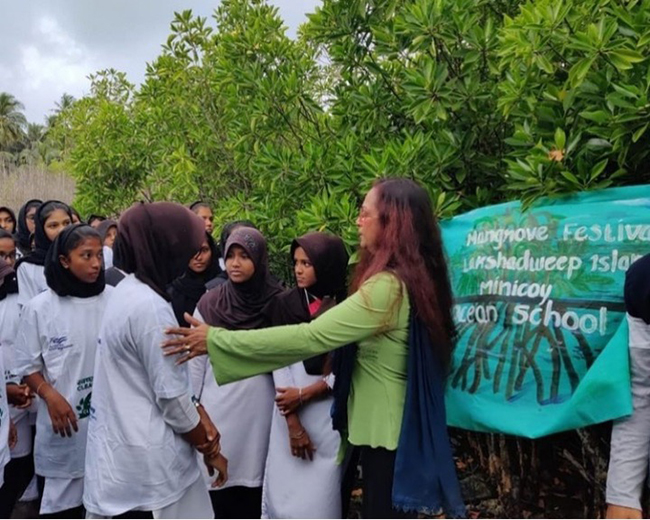
What advice would you give other women who want to make a difference like you?
My message to other women would be: No matter how small your climate mitigation action or how small your audience, keep planting ideas which bring forth measurable impact. Every effort counts towards keeping the 1.5 under control. Stand up for Mother Earth! Women’s rights and environmental issues are inextricably linked. Keep the fire in your belly burning bright and strong. As women, know that you can use your innate energy to harness a well-equipped next generation, so keep educating the younger generation in your fight to protect planet Earth.
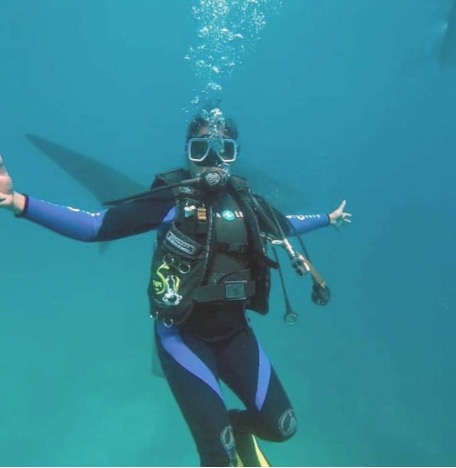
----------------
This is one article in a series with five women climate leaders asking each 5 questions about their climate impact in their country. Read the rest of the stories and sign up for our email list. Did Elsie inspire you? Learn more here on how to become a climate leader and start making an impact today.

